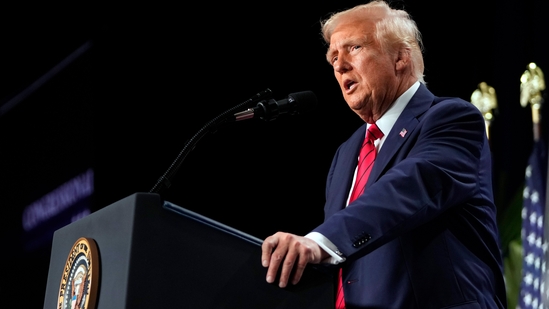The Trump administration has been obstructing the U.S. National Institutes of Health (NIH) from issuing new research grants for weeks, impacting studies on diseases such as Lyme disease, lung disease, and heart disease. According to researchers, a former NIH official, and internal documents, a bureaucratic loophole has stalled the approval process for critical medical research funding.
A Procedural Block on Grant Approvals
The administration has restricted the NIH from completing a crucial step in the grant approval process—publishing meeting notices in the Federal Register. This requirement, typically a routine administrative process, has now become a barrier preventing NIH from conducting final reviews for grant approvals.
While the NIH announced on Monday that it would begin publishing some preliminary meeting notices, an internal email reviewed by Reuters confirms that advisory council meetings, which play a key role in final grant approvals, remain on hold. NIH’s internal systems still prohibit publishing notices for these review committees.
This procedural hold, first reported by Transmitter and Nature, has left dozens of scheduled NIH meetings unpublicized and stalled critical research funding.
Budget Cuts and Policy Standoff
The funding block aligns with broader efforts by President Donald Trump and business magnate Elon Musk—one of Trump’s close advisors—to cut government spending, including NIH’s $47 billion annual budget.
On February 7, NIH announced plans to reduce grant funding for research institutions, including universities and hospitals. However, a federal court intervened on February 10, issuing a temporary order to halt those cuts. Despite this ruling, bureaucratic maneuvers have continued to hinder NIH operations.
Nate Brought, who resigned on February 17 as Director of NIH’s Office of the Executive Secretariat, cited these funding delays as one of the reasons for his departure. “The court order means NIH should be operating normally, but we’re not, because they’re putting up barriers to make sure that we can’t,” Brought explained.
Political Backlash and Legal Concerns
The ongoing restrictions have drawn sharp criticism from lawmakers. U.S. Senator Patty Murray, a senior member of the Senate’s health committee, condemned the hold, calling it illegal. In a February 21 press release, she stated, “Trump and Elon are suffocating the work of cancer researchers with so much red tape that labs and clinical trials will be forced to shut down.”
While an NIH spokesperson confirmed that preliminary review notices could now be published incrementally, they also acknowledged that advisory council meetings—critical for final grant approvals—remain in limbo. The Department of Health and Human Services (HHS), which oversees NIH, has declined to comment on the situation.
Researchers Face Uncertain Futures
The funding freeze has had immediate consequences for researchers nationwide.
Brian Stevenson, a microbiology professor at the University of Kentucky studying Lyme disease, has seen his research grind to a halt. His three grant proposals were set to undergo expert review last week, but those meetings were abruptly canceled. Without funding, Stevenson’s lab, which studies the bacterial mechanisms of Lyme disease, may be forced to shut down by the end of the year.
“They could graduate soon. But what are you going to do? What are the jobs going to be? These are scary times,” Stevenson said, reflecting on the uncertainty facing his graduate students.
Similarly, Suzanne Judd, director of the Lister Hill Center for Health Policy and a professor at the University of Alabama at Birmingham, is grappling with potential disruptions to a major heart and lung disease study.
Judd co-leads a $35 million research project monitoring 4,600 participants across rural Alabama, Kentucky, Louisiana, and Mississippi. The study provides essential health screenings, such as CT scans and echocardiograms, to identify risk factors for chronic diseases. However, the grant funding for this study, initially set for review in March, has been delayed indefinitely. Without approval, Judd fears the study may be forced to pause this summer, putting 50 research jobs at risk.
“Long-term observational studies like ours allow researchers to understand diseases that take decades to develop,” Judd explained. “This type of research is crucial in shaping how we treat patients.”
The Looming Impact on Future Research
The NIH’s grant approval process typically takes nine months, with only three funding cycles per year. Carole LaBonne, a professor of molecular biosciences at Northwestern University, warned that if the Federal Register prohibition remains in place, it could jeopardize the third funding cycle, set to begin in May.
NIH researchers face an additional risk: if grant money is not allocated by the September 30 end of the fiscal year, it will be permanently lost.
“They basically found a way to keep most of the NIH paralyzed,” LaBonne said.
As the standoff continues, researchers, universities, and healthcare institutions are left in limbo, unsure whether their critical studies—many of which aim to combat life-threatening diseases—will receive the funding they desperately need.




